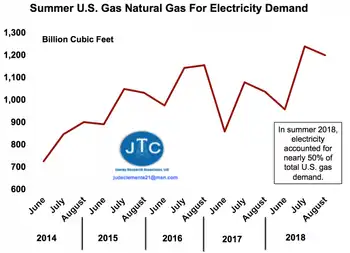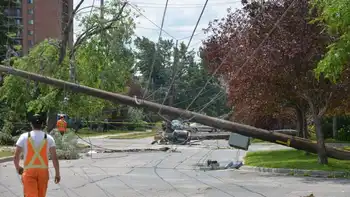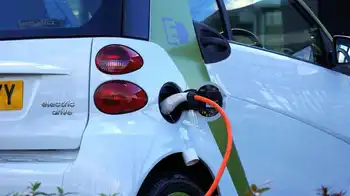Maryland measure seeks to strengthen energy regulation
By Associated Press
CSA Z463 Electrical Maintenance -
Our customized live online or in‑person group training can be delivered to your staff at your location.

- Live Online
- 6 hours Instructor-led
- Group Training Available
O'Malley said he will introduce legislation that would give the Maryland Public Service Commission the authority to determine when new energy generation is needed. Then, the PSC could order an energy company to build a new power plant as needed.
"In other words, the Public Service Commission will determine what we need, when we need it and where we need it — based on the public's interest," O'Malley, a Democrat, said.
In effect, the plan is to return to the way new power plants were built in Maryland prior to the 1999 decision to deregulate. The PSC would order a regulated utility to build a plant at a site. The company, rather than charging what the market would bear, would only be able to charge its cost and a reasonable rate of return. The money to build the plant would come from a combination of the ratepayers and the company.
"The legislation that we are proposing will put an end to blind deregulated faith in proven dysfunctional and broken markets, markets that have delivered neither price stability nor... predictability of supply," O'Malley said.
Sen. E.J. Pipkin, an upper Eastern Shore Republican, and Sen. James Rosapepe, D-Prince George's, who support re-regulation, described the governor's announcement as a positive step and want to see more details.
"I don't think there's anybody left in Annapolis, other than paid lobbyists or people who have been profiteering off of deregulation who think deregulation worked," Rosapepe said.
Pipkin said the goal is to return to a regulated environment.
"That's a policy shift for the General Assembly," Pipkin said. "As to how long that takes and the specifics of that, it just changes the whole regimen of how the PSC operates."
Mayo Shattuck III, CEO of Baltimore-based Constellation Energy, said the company had not seen the plan in detail, but he said O'Malley's approach "differs greatly from the other proposed legislation that we have seen in recent weeks."
"These proposed laws are unworkable attempts to reach into the past, change the regulatory assumptions surrounding existing ownership of power plants and would lead to further destabilization of the Maryland energy markets," Shattuck said in a statement.
Leah Gibbons, the head of the Maryland Retail Energy Supply Association, said more regulation won't lower electricity bills.
"In fact, it will ensure that Maryland customers will be forced to bear all new investment risks associated with the utilities building new (power) generation," Gibbons said in a statement.
Malcolm Woolf, director of the Maryland Energy Administration, said the bill would require the PSC to conduct long-term planning for the state's energy future, deciding what kind of power plants are needed and where.
"That process is going to take the better part of this year," Woolf said. "If, in fact, they go forward and order a new plant it would take at least a couple of years to actually construct those plants."
O'Malley's announcement follows a stream of complaints from consumers about rising electricity bills. Two Senate committees will hold hearings this week on what Senate President Thomas V. Mike Miller has described as "abnormally high" electricity bills this winter.
The governor said it will take a while to get back to a re-regulated market, but he said it's time to get started.
"This is not a quick fix by any means," O'Malley said. "It is rational re-regulation that requires an analysis moving forward to see when new generation should be regulated because it would be in the best interest of the public."
O'Malley said it's impossible to fully undo Maryland's 1999 decision to deregulate. That's because it would be far too expensive to buy back energy plants from private utilities. O'Malley said the huge expense would only be passed on to consumers.
The governor also said if the state makes big investments, it should be in cleaner renewable energy, instead of the mostly coal-fired plants of the past.
Maryland is threatened with a future energy crunch, due to higher demands for electricity outpacing supply. The problem is compounded by a highly congested transmission capacity and aging infrastructure. If nothing is done, the state could face shortages resulting in rolling brownouts or blackouts by 2011, according to a Public Service Commission analysis.











